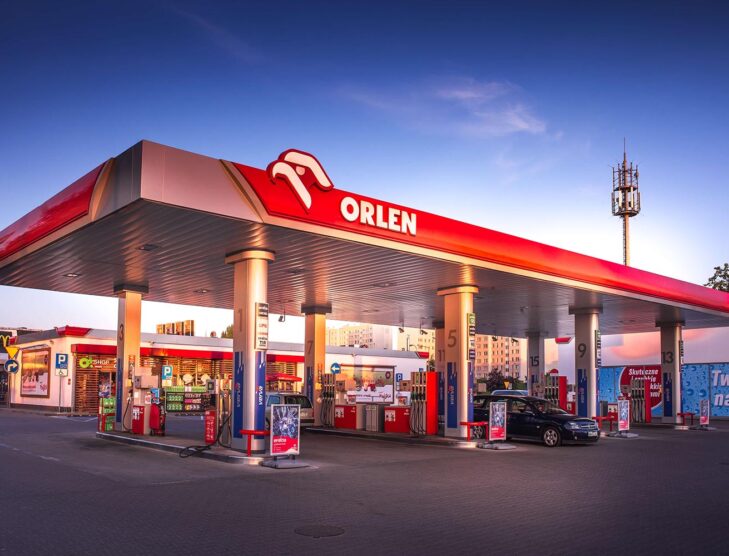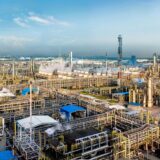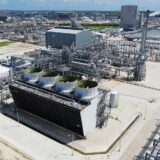
ORLEN Group reveals its total carbon footprint
The ORLEN Group, which operates the largest network of fuel stations in Central Europe, is extending its sustainability reporting framework to include Scope 3 emissions, which will allow it to quantify greenhouse gas emissions across the value chain.
Accordingly, the ORLEN Group’s disclosures will include not only direct emissions from its production processes and those generated by suppliers, but also emissions related to the use of the group’s products by end users.
Based in Płock, Poland, it operates seven refineries in Poland, Czech Republic and Lithuania. ORLEN Group is the leading producer and major supplier of Jet A-1 aviation fuel in Central Europe.
Carbon footprint is comprised of total greenhouse gas emissions attributable directly or indirectly to the group. Carbon footprint is currently measured across three scopes, as defined by the international GHG Protocol standard.
- Scope 1 – direct emissions from fuel combustion in sources owned or controlled by a company, or from industrial processes and refrigerant leaks. For the ORLEN Group, Scope 1 makes up about 20% of total emissions.
- Scope 2 – indirect emissions from the consumption of imported (purchased or externally supplied) electricity, heat, process steam, and cooling (GHG emissions physically occur at the point of energy generation). For the ORLEN Group, Scope 2 makes up about 1% of total emissions.
- Scope 3 – other indirect emissions generated across the value chain, for instance from the use of products by end users, production of raw materials or intermediate products, waste management, transportation of raw materials and products, or business travel. For the ORLEN Group, Scope 3 makes up about 80% of total emissions.
The Group has published data for 2019-2021, but in the following years reporting will also cover the newly acquired companies Grupa Lotos and PGNiG.
“Scope 3 reporting, in accordance with the GHG Protocol methodology, is relevant for investors and other actors in the group’s business environment, as it allows for a quantifiable assessment of the execution of ORLEN Group’s carbon neutrality strategy. . It also impacts on ESG ratings and the terms of financing the group is able to obtain, necessary to make strategic investments in its energy transition and emission reduction goals. Full reporting of carbon footprint is also a response to the EU Corporate Sustainability Reporting Directive (CSRD),” says says Daniel Obajtek, president of the PKN ORLEN Management Board.
“Annual reporting of the organisation’s carbon footprint is not only an expression of our concern for the environment, but also a business requirement highly relevant in our relations with the investor community. By consistently pursuing our strategy of net zero emissions and transparent reporting, we are able to negotiate attractive terms of financing for further strategic projects. It is by investing in new technologies and renewable energy sources that we are building our position as Central Europe’s leader in energy transition,” says Obajtek.
PKN ORLEN is the first multi utility company in Central Europe to have declared an aim to achieve emission neutrality by 2050. In furtherance of this goal, the Group aims to reduce carbon emissions from its existing refinery and petrochemical assets by 20% and cut down carbon emissions per megawatt-hour of electricity by 33% by 2030. The emission neutrality strategy is based on four pillars: energy efficiency in production, zero-carbon power generation, fuels of the future, and green financing.
.jpg)











